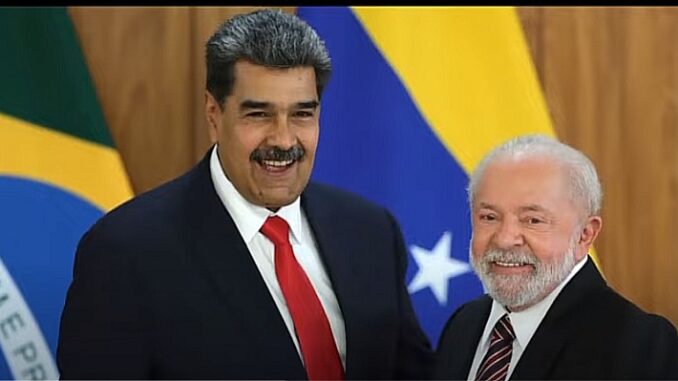
Venezuela, China, Russia – BRICS and the Shifting Landscape in International Relations
On August 3rd, 2023, Venezuela officially applied to join the BRICS alliance, signaling a significant shift in its international relations strategy. This move is viewed as a strategic response to U.S. sanctions, aiming to build stronger ties with nations beyond the traditional Western allies. The implications of this decision, coupled with Venezuela’s foray into digital currency, are reshaping its economic landscape.
Venezuela’s Dilemma: U.S. Sanctions and Currency Challenges
Venezuela finds itself grappling with restrictions imposed by the U.S., hindering its ability to use the dollar for international transactions. The country’s interest in joining BRICS, comprising Brazil, Russia, India, China, and South Africa, is driven by a desire to expand its oil and energy trade, especially with India and China. This move becomes more strategic as some OPEC members transition to renewable energy sources.
BRICS Involvement: Shifting Global Financial Dynamics – Exploring the dynamics of BRICS and its member countries
Venezuela’s potential entry aligns with a global trend among countries to consider gold or resource-backed digital currencies, reducing reliance on the U.S. dollar. Russia plays a key role in slowing down U.S. dollar transactions, a response to the realization that the dollar can be wielded as a tool for financial sanctions.
China’s Influence on Venezuela’s Transformation – China emerges as a crucial player in Venezuela’s economic transformation
President Xi Jinping and his Venezuelan counterpart, Nicolas Maduro, recently signed extensive cooperation agreements in Beijing, marking a commitment to an “All-weather strategic partnership.” This partnership encompasses trade, the economy, and tourism, positioning China as a significant supporter of Venezuela’s recovery efforts.
Venezuela’s Digital Currency Revolution
In a groundbreaking move, Venezuela has embraced the petro currency, becoming the first country with a national digital currency backed by oil reserves. This strategic shift aims to sidestep U.S. dollar restrictions and create an oil economy. The issuance of petro coins presents a potential economic boon, offering flexibility in savings, circulation, and even wage payments.
Russia’s Role in Venezuela’s Economic Growth
Venezuela and Russia are intensifying efforts to reduce their reliance on the U.S. dollar. Agreements between their central banks, coupled with the full implementation of the Russian Mir payment system in Venezuela, underscore their commitment to reinforcing financial communication. These measures are a response to perceived threats to their sovereignty from Western sanctions.
China’s Contribution to Venezuela’s Growth
China’s comprehensive cooperation agreements with Venezuela, ranging from trade to investments in infrastructure and natural resources, highlight a paradigm shift in global alliances. This partnership, a part of the Belt and Road Initiative, not only stabilizes oil prices but also opens up avenues for trade and investment, potentially revitalizing Venezuela’s struggling economy.
Geopolitical Considerations: Potential Military Alliance within BRICS
Beyond economic shifts, there are speculations about Venezuela proposing a military alliance within BRICS, akin to the Shanghai Cooperation Organization. While unconfirmed, this prospect gains significance as NATO conducts naval exercises in the Caribbean. In light of Venezuela’s recent military collaborations with nations like Iran, such a move could serve as a counterbalance to Western military activities in the region, further asserting the nation’s sovereignty.
Challenges and Realities: Overcoming Dollar Dominance
Despite Venezuela’s efforts to diversify currencies, challenges persist in reducing the dominance of the U.S. dollar in its local economy. The petro and alternative currencies like the Bolivar and Euro aim to provide alternatives, yet the entrenched role of the dollar poses a formidable obstacle. Overcoming this challenge is crucial for Venezuela’s economic independence and resilience against external pressures.
Global Implications: A Shifting Landscape in International Relations
Venezuela’s multifaceted approach, encompassing BRICS membership, digital currency adoption, and strategic alliances with Russia and China, reverberates globally. It reflects a broader trend where nations, particularly in the Global South, seek to reshape international financial dynamics and reduce dependence on traditional Western structures.

Source: Tech Revolution, 5 Dec 2023.
More at video link: https://youtu.be/AH1Ojb6SuCE